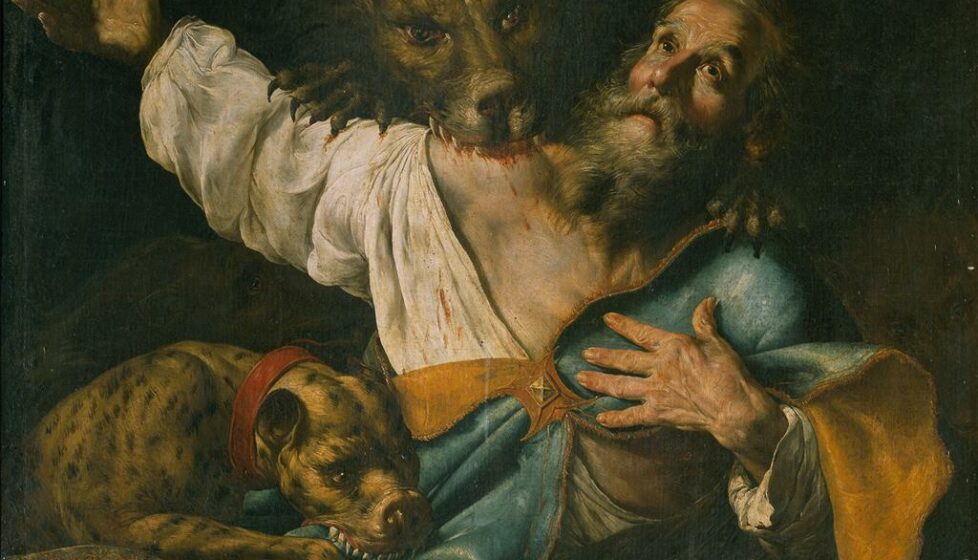Stories of Christian Martyrs: Cheryl Beckett
Afghanistan

Cheryl Beckett was excited about the opportunity to accompany a medical team on a service trip to remote Afghan villages. During her nearly six years of living there, she had traveled to several places outside Kabul, but this new trip was to an area she had never visited before. It was also an area featured in one of her favorite stories by Rudyard Kipling, “The Man Who Would Be King.” She knew in her heart that it would be a memorable, life-changing experience, albeit one that might also hold some danger. Certainly, the thirty-two year-old humanitarian aid worker never could have foreseen that it would be her last adventure on Earth and the beginning of her eternal adventure in Heaven.

To some degree, living in Afghanistan always held the prospect of danger, yet Beckett had felt a calling from the Lord to serve there, leading
community development projects. Mainly, she taught villagers how to
provide food for themselves through nutritional gardening, and she also
worked in women’s clinics, teaching mothers and children how to keep
themselves healthy. Whenever the opportunity arose, she shared about her
faith in Jesus. This new trip with International Assistance Missions would
take her to the province of Nuristan, meaning “Land of Light.” Through
providing basic dental, eye, and prenatal care to villages in the area, Beckett and her teammates would be bringing the Light of Life to the Afghan people. Besides that, Beckett hoped to entertain any children she met there by making balloon animals for them. For her, it was an experience worth the risk of physical danger. As she once said to a friend, “I want to walk in faith in this place. We are not promised safety … but I know that there will also be beauty and fruit due to walking in obedience to God.”
Beckett and her teammates traveled far into northern Afghanistan mainly by foot, at times having to cross very rough terrain involving high mountains and rain-flooded rivers. Day after day they ministered to villagers they met, many of whom suffered physically from their medical
issues. They spoke to the people and comforted them, demonstrating
Jesus’ love with their kindness and service. After three weeks, the team
packed up to head back to Kabul. As they were hiking through the mountains, they were suddenly surrounded by a group of armed Taliban insurgents who marched them into the woods and shot them to death one by one as they stood in a line. The Taliban’s accusation against the aid team was that they were spies trying to spread Christianity.
Jesus once said, “If anyone would come after me, let him deny himself
and take up his cross daily and follow me” (Luke 9:23). The ten martyrs
embodied this mandate to the point of death. They had all left successful
businesses or family and friends in their home countries to serve as
humanitarian aid workers for Christ. Each of the members contributed
needed services and unique skills which caused the entire team to work
efficiently as a single unit. They served others as well as one another.
Tom Little, age sixty-one, was the group’s leader. He had served as an optometrist in Afghanistan since the 1970s with his wife, providing
eye care for anyone in need, even Taliban soldiers. His three daughters
were all raised in Afghanistan.
Another veteran aid worker who had arrived in Afghanistan in the 1970s was Dan Terry, age sixty-four. He worked with Global Ministries and was considered a peacemaker who had a heart for the poor and marginalized. He was deeply passionate about the languages and culture of Afghanistan.
Dr. Thomas L. Grams had left a successful dental practice in Colorado in 2007 to serve with Global Dental Relief. His service had taken him not only to Afghanistan, but also to isolated villages up Mount Everest, where he had to carry dental equipment by yak.
Dr. Karen Woo, a Briton, had served in South Africa, Australia, Papua New Guinea, and Trinidad and Tobago. Eventually, after visiting a friend in Kabul, she quit her job with its six-figure surgeon’s salary to move there permanently. She was involved in raising money for charities and hoped to eventually promote women’s rights in Afghanistan.
Daniela Beyer, a shy German woman, was a minister’s daughter whose faith was very important to her. She had worked on translating textbooks into Afghan languages.
Glen D. Lapp was a nurse from Pennsylvania who specialized in eye care and hoped to represent Christ in his vocation while serving in Afghanistan.
Brian Carderelli, one of the youngest of the group at twenty-five, was
a videographer from Virginia. He saw beauty in the Afghan people and
their country, and had a passion for capturing it on film and sharing it
with the world, saying “It’s not all war.”
Two Afghan members of the team — a cook and a driver — who had come along in support of the aid work were also killed.
In His life on earth, Jesus provided not only for the spiritual needs
of people, but for their physical needs as well. He fed many thousands
who were hungry after spending all day sitting on a hillside listening to
Him preach. To those who were blind He gave sight, and for those who
couldn’t walk or stand, He strengthened their legs and made them able.
During His last earthly meal, He knelt before His disciples in a humble
manner and washed their coarse, dirty feet, telling them they ought to
follow His example of love and service in similar ways. That’s just what Cheryl Beckett and her fellow International Assistance Missions teammates did when they risked their lives to provide medical care in remote, rural villages in Afghanistan. To know Christ and to make Him known through service in love is what drove this group of martyrs, and it is what they will be remembered for.
This story is an excerpt from Foxe: Voices of the Martyrs. You can get your own copy free with any donation to The Voice of the Martyrs.



 Guide
Guide